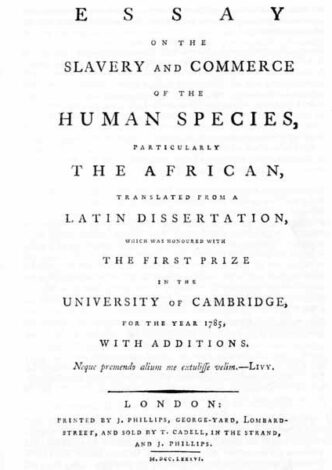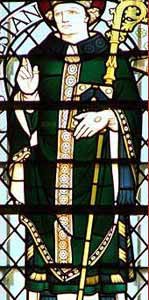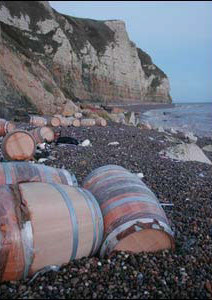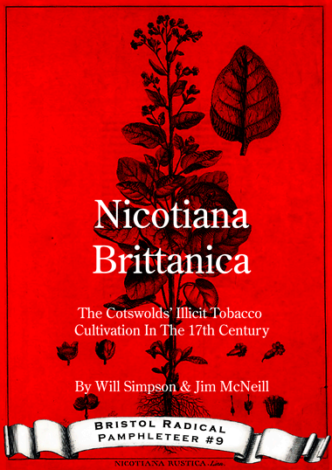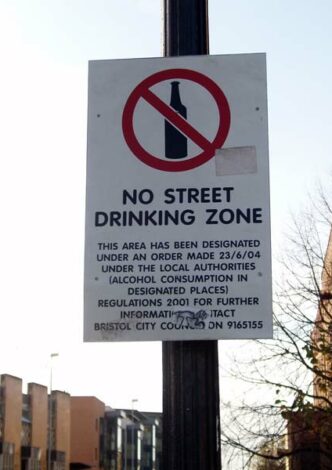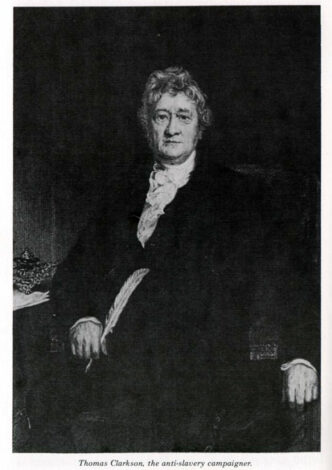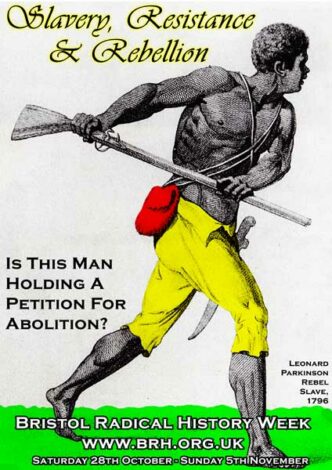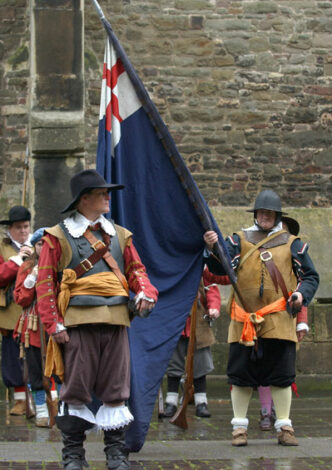The Seven Stars pub in St Thomas Lane (next to the Fleece and Firkin) is without doubt a remarkable pub. It has survived the Blitz, post and pre war planners, new roads (such as Victoria Street) and all of the brewery ‘re-organisations’ and changes in fashion. It even lost the community that surrounded it, but it’s still there, a beacon on our past. The reason its survival is so important is due to one man, Thomas Clarkson, and if it wasn’t for Bristol Civic Society nobody would have been aware […]
In between the howling gales, we had a day of calm which coincided with a spur of the moment event; 'A Celebration of St Wulfstan', on his saints day, the 19th of January. After a brief rendition of his life was published in last months magazine, a number of people got together to try and celebrate the great man's life, in the actual church in which he served, as a contribution to Abolition 200 year. Several people had stated that we ought to do something, and contact was made through the […]
The slides from Roger Ball's talk Branscombe Bay And The Sea Commons which was part of Bristol Radical History Week 2007 – Pirates, Witches & Smugglers. Download the pdf file here.
Not Exactly A Digger Thing? Notes from Jim McNeill's lecture during the Smugglers 1 events at Bristol Radical History Week 2007. 1598: In the House of Lords by Lord Harris, asked that English and Irish farmers might be permitted to test whether tobacco could be produced in this country at a profit. 1619: A London merchant, John Stratford, purchased spare land in and around Winchcombe and planted tobacco. See next section of these notes. 1619: Act banning Tobacco growing in England passed — just […]
Reclaim the Hill!: A celebration of the radical history of Brandon Hill and Stop the College Green Dispersal Order Despite the vagaries of the English summer of 2007, a small but feisty mob of radical historians, skate boarders and cider drinkers gathered on Brandon Hill in Clifton on August 19th. We were both celebrating the 175th anniversary of the invasion of the Great Reform Dinner and protesting against the dispersal order served on Bristol citizens this summer. What is the connection? […]
A Transcript taken from a document found behind the bar at The Seven Stars Pub. It was an inn in the latter half of the Seventeenth Century, for in the Reign of Charles the Second, Richard Pope, Linen Draper, one of the sons of William Pope, merchant, granted to the feoffoes of Saint Thomas a yearly rent of 30/-d. out of the tenement called “The Starrs then in the possession of Michael Jaine, victualler, in accordance with his father’s will.” IT is interesting from its connection with the slave […]
 A Brief Political And Economic Introduction To Bristol Glass
A Brief Political And Economic Introduction To Bristol Glass
There were a number of economic and political changes during the 16th and 17th centuries which prepared the ground for the establishment of the glass industry in Bristol. In 1522 the ‘Society of Merchant Venturers of the City of Bristol’ was incorporated. It grew in power and influence through the 17th century during which the Society revitalised and effectively reorganised itself to allow Bristol’s maritime merchants to take the fullest advantage of the Britain’s developing colonial […]
Origins of the Caribbean Demand for Slaves One of the consequences of the establishment in the 17th century of the sugar industry in the British colonies in the Caribbean region was the importation of Africans to work as slaves. The result of this was that black people very soon comprised the great majority of the populations. During the colonial era British propagandists successfully misled their colonial subjects about their own history. What was taught in schools and portrayed in the press […]
Who are you and what on Earth are you doing? We are members of the Blew Regiment which in turn is part of the Parliament Army of the Sealed Knot, a society of several thousand members which re-enacts battles of the English Civil War. Where are you from? We have members from the north of England, Devon, Bristol, Essex, Kent and even the Channel Islands as well as all points in-between. When and where does it happen? As a rough guide battles and events are held on a number of weekends from Easter […]
 The Southmead Riots
The Southmead Riots
April of 2005 saw the 25th anniversary of the St Paul's riots, a day and night in 1980 that not only was the precursor for further riots in London and Liverpool but the catalyst also that sparked changes that are still reverberating to this day. As Paul Stephenson, the former regional executive officer for the Commission for Racial Equality has commented: 'The riots were a wake up call for the country'. To mark the occasion, a two-page article appeared in The Bristol Evening Post featuring the […]
